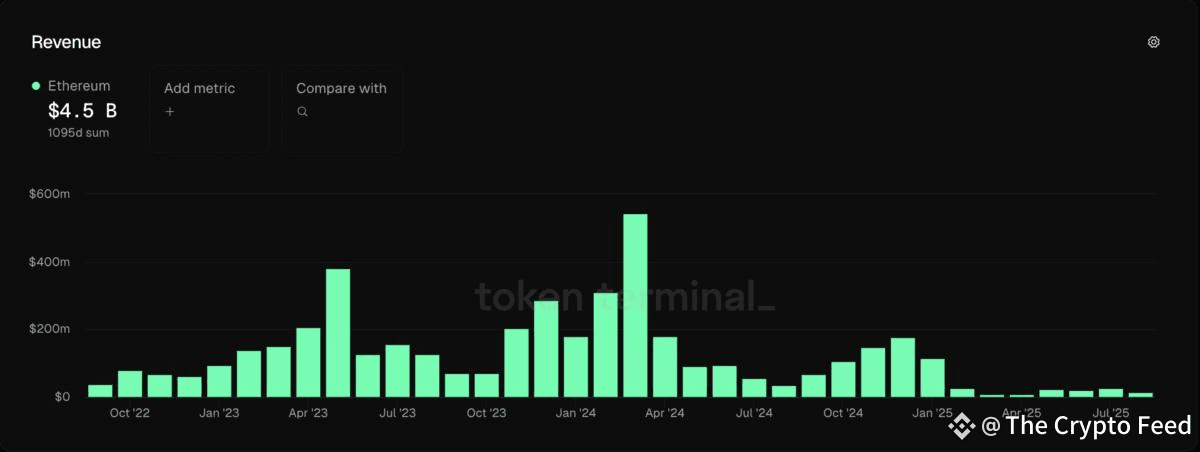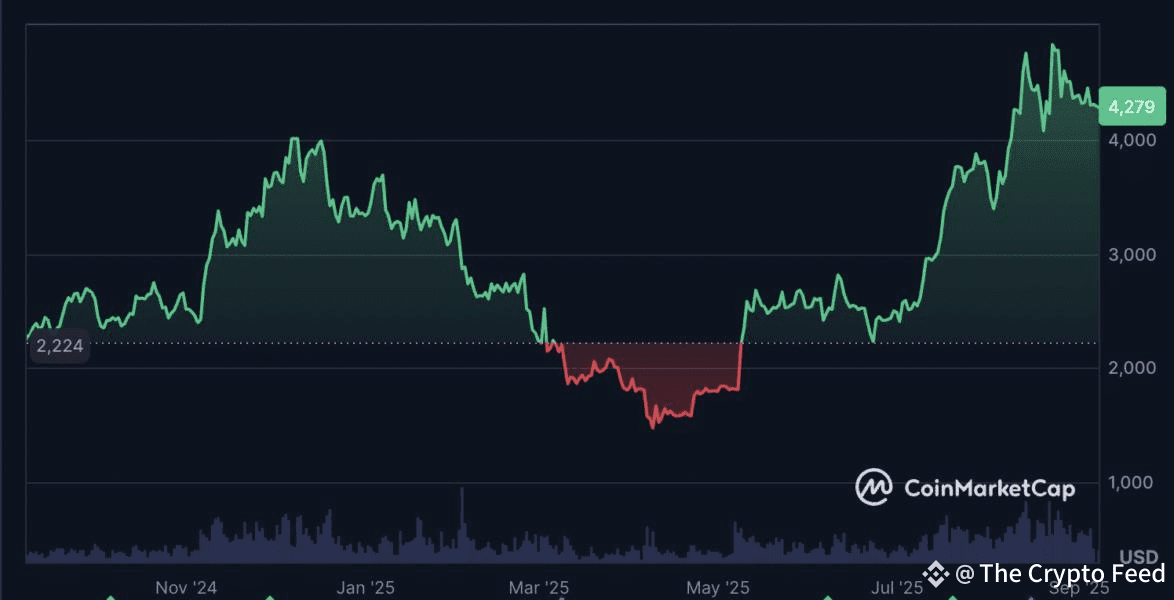Despite Ether's (ETH) price reaching an all-time high of $4,957 in August, Ethereum's revenue and network fees saw a significant drop. Revenue, which is the portion of network fees that are "burned" and accrue to ETH holders, fell by about 44% in August to $14.1 million, down from $25.6 million in July.
This decline is largely due to a decrease in overall network fees, which dropped by 20% month-over-month to $39.7 million. Following the Dencun upgrade in March 2024, transaction fees for Layer 2 networks built on Ethereum have fallen dramatically, leading to the overall drop in network revenue.

The falling fees have renewed the debate about Ethereum's long-term viability. Critics argue that the network's fundamentals are unsustainable, while supporters believe it's a foundational pillar for the future of finance.

Institutional Interest Grows in 2025
Even with the revenue concerns, 2025 has been a busy year for Ethereum, as the community actively pitches the blockchain to Wall Street and publicly traded companies. This push has helped drive ETH's price to new highs.
One advocacy firm, Etherealize, which markets Ethereum to public companies, successfully raised $40 million in September.
According to Matt Hougan, the CIO of investment firm Bitwise, traditional financial institutions are particularly interested in Ethereum's yield-bearing features. He notes that these firms are accustomed to assets that generate earnings. By staking their ETH—locking up their tokens to help secure the network—companies can earn a yield, making Ethereum a more attractive investment in the eyes of these institutions.#ETHUSD #ETHUSDT

